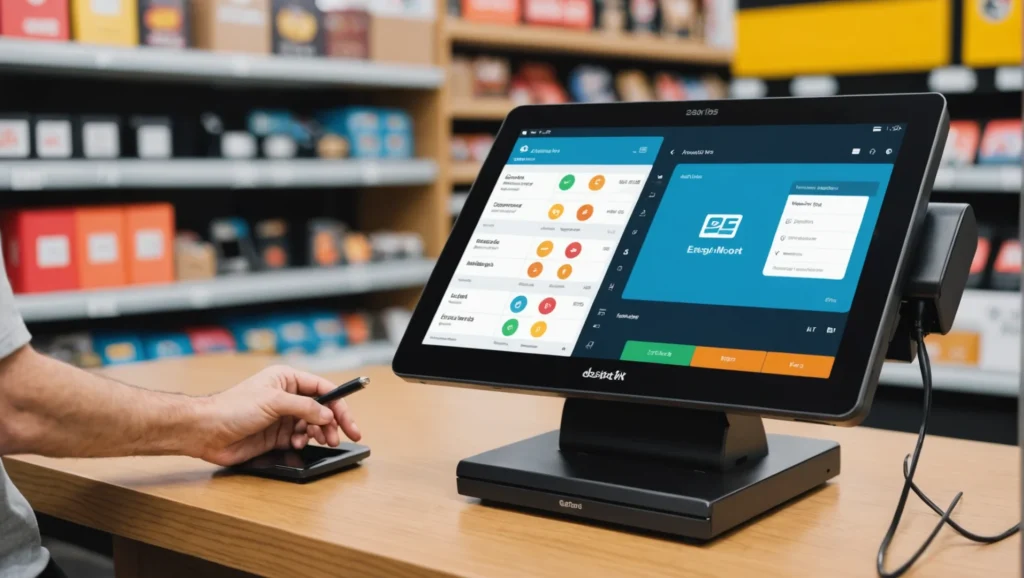How POS Systems Improve Business Efficiency

In today’s fast-paced and highly competitive market, businesses need to operate with maximum efficiency to stay ahead. One of the most powerful tools that helps businesses streamline operations and improve productivity is the Point of Sale (POS) system. Far more than a cash register, a modern POS system combines hardware and software to manage sales, inventory, customer data, and much more. Let’s explore how POS systems enhance business efficiency across different areas.
1. Faster Transactions and Reduced Errors
A key feature of POS systems is their ability to speed up the checkout process. With barcode scanning, product lookups, and integrated payment processing, sales can be completed in seconds. This not only reduces customer wait time but also minimizes manual entry errors. For restaurants and retail stores especially, faster transactions lead to higher throughput and improved customer satisfaction.
Additionally, modern POS systems automatically apply discounts, promotions, or taxes, reducing the likelihood of human mistakes. These small efficiencies add up to significant time savings over the course of a day or week.
2. Improved Inventory Management
One of the biggest challenges for any product-based business is keeping track of inventory. Traditional methods like manual counting and spreadsheets are time-consuming and prone to inaccuracies. A POS system automates inventory tracking in real time. Every sale, return, or stock adjustment is recorded instantly.
Business owners can set alerts for low stock levels, view stock movement, and generate reports to better understand which products are fast-moving and which aren’t. This reduces waste, prevents overstocking or understocking, and enables smarter purchasing decisions.
3. Centralized Data and Reporting
POS systems provide centralized access to a wide range of business data, including sales trends, employee performance, customer preferences, and more. With just a few clicks, business owners can generate detailed reports and dashboards that give a clear overview of operations.
For example, if sales are dropping during certain times of the day or week, this insight can inform changes to staffing, promotions, or store layout. Without a POS system, collecting and analyzing this data would be a manual and time-consuming process.
4. Employee Management and Accountability
POS systems also help with workforce management. Business owners can track employee hours, monitor sales performance, and assign roles and permissions within the system. This ensures accountability and encourages productivity, as employees are aware that their actions are being monitored.
Features like secure logins and activity tracking also help prevent internal theft or misuse, which can be a common concern in cash-based businesses.
5. Better Customer Relationship Management (CRM)
Efficiency isn’t just about what happens behind the scenes—it’s also about delivering better service to customers. POS systems with built-in CRM tools can collect customer data such as purchase history, contact information, and preferences. This enables personalized marketing, loyalty programs, and better customer engagement.
By offering customers more relevant promotions or remembering their favorite items, businesses can foster loyalty and increase repeat sales—all while saving time on manual marketing efforts.
6. Multi-Location and Remote Management
For businesses with multiple locations, managing operations across branches can be complex. Cloud-based POS systems allow business owners to monitor and manage all locations from a single dashboard, even remotely. Whether you’re traveling, at home, or managing multiple outlets, you have real-time access to performance data.
This level of flexibility greatly improves decision-making speed and reduces the time required for in-person supervision.
Conclusion
A modern POS system is far more than a tool for processing sales. It’s a central hub that streamlines daily operations, improves data accuracy, enhances customer service, and boosts overall productivity. For businesses looking to scale and stay competitive in the modern marketplace, investing in a powerful POS system is a smart and efficient move.
By saving time, reducing errors, and giving better visibility into your operations, a POS system ultimately empowers your team to focus on what really matters—growing the business.






